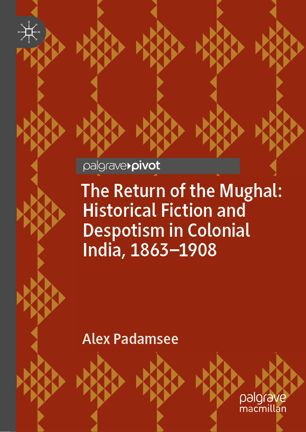

Most ebook files are in PDF format, so you can easily read them using various software such as Foxit Reader or directly on the Google Chrome browser.
Some ebook files are released by publishers in other formats such as .awz, .mobi, .epub, .fb2, etc. You may need to install specific software to read these formats on mobile/PC, such as Calibre.
Please read the tutorial at this link: https://ebookbell.com/faq
We offer FREE conversion to the popular formats you request; however, this may take some time. Therefore, right after payment, please email us, and we will try to provide the service as quickly as possible.
For some exceptional file formats or broken links (if any), please refrain from opening any disputes. Instead, email us first, and we will try to assist within a maximum of 6 hours.
EbookBell Team

4.1
70 reviewsThis Pivot explores the uses of the Mughal past in the historical fiction of colonial India. Through detailed reconsiderations of canonical works by Rudyard Kipling, Flora Annie Steel and Romesh Chunder Dutt, the author argues for a more complex and integral understanding of the part played by the Mughal imaginary in colonial and early Indian nationalist projections of sovereignty. Evoking the rich historical and transnational contexts of these literary narratives, the study demonstrates the ways in which, at successive moments of crisis and contestation in the later Raj, the British Indian state continued to be troubled by its early and profound investments in models of despotism first located by colonial administrators in the figure of the Mughal emperor. At the heart of these political fictions lay the issue of territoriality and the founding problem of a British claim to sole proprietorship of Indian land – a form of Orientalist exceptionalism that at once underpinned and could never fully be integrated with the colonial rule of law. Alongside its recovery of a wealth of popular and often overlooked colonial historiography, The Return of the Mughal emphasises the relevance of theories of political theology – from Carl Schmitt and Ernst Kantorowicz to Talal Asad and Giorgio Agamben – to our understanding of the fictional and jurisprudential histories of colonialism. This study aims to show just how closely the pageantry and romance of empire in India connects to its early politics of terror and even today continues to inform the figure of the Mughal in the sectarian politics of Hindu Nationalism.